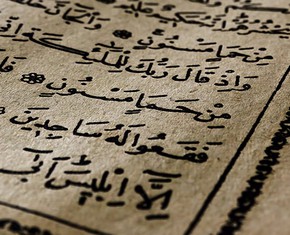The views expressed in our content reflect individual perspectives and do not represent the authoritative views of the Baha'i Faith.
Since learning about the Baha’i Faith when I was 14—and now being, well, quite a bit older than 14—I have heard all of the false claims, assertions and accusations regarding my religion.
In parts 1 & 2 of these articles, let’s deal straightforwardly with some of the most obvious untruths: the Baha’i Faith is a cult or a sect of Islam; a Baha’i clergy exists; you are born a Baha’i if you come from a Baha’i family; Baha’is don’t believe in Christ; and Baha’is want your money. None of these contain a shred of truth—in fact, they’re completely false.
False claim #1: “The Baha’i Faith is a sect of Islam”
In fact, the Baha’i Faith is a distinct religion unto itself, recognized as such by the vast majority of the world’s nations and scholars. Although the prophet and founder of the Faith, Baha’u’llah, was born into a Muslim family, he went on to establish a completely independent religion. His relationship to Islam is the same as Christ’s relationship to Judaism. Born a Jew, Jesus fulfilled Jewish prophecy and founded Christianity. Although Christianity incorporates the same truths as the Jewish faith, they are two separate religions. Baha’u’llah came to unite the religions:
Christ was the Prophet of the Christians, Moses of the Jews—why should not the followers of each prophet recognize and honor the other prophets also? If men could only learn the lesson of mutual tolerance, understanding, and brotherly love, the unity of the world would soon be an established fact. – Abdu’l-Baha, Paris Talks, pp. 48-49.
Inasmuch as the essential reality of the religions is one and their seeming variance and plurality is adherence to forms and imitations which have arisen, it is evident that these causes of difference and divergence must be abandoned in order that the underlying reality may unite mankind in its enlightenment and upbuilding. All who hold fast to the one reality will be in agreement and unity. Then shall the religions summon people to the oneness of the world of humanity and to universal justice; then will they proclaim equality of rights and exhort men to virtue and to faith in the loving mercy of God. The underlying foundation of the religions is one; there is no intrinsic difference between them. Therefore, if the essential and fundamental ordinances of the religions be observed, peace and unity will dawn, and all the differences of sects and denominations will disappear. – Abdu’l-Baha, The Promulgation of Universal Peace, p. 99.
False claim #2: “The Baha’i Faith has a clergy just like other religions”
Baha’is believe that intermediaries such as pastors, priests, mullahs or rabbis are no longer necessary for learning about and communing with God. Since the teachings of the Baha’i Faith state that all of humanity is equal without exception, Baha’is believe that we have reached a collective state of human maturity, and that we can independently search for and investigate truth for ourselves. Each of us has an individual relationship with God that is sacred and personal—we have reached a stage of human maturation that no longer requires the old forms of faith:
This is the cycle of maturity and reformation in religion as well. Dogmatic imitations of ancestral beliefs are passing. They have been the axis around which religion revolved but now are no longer fruitful; on the contrary, in this day they have become the cause of human degradation and hindrance. Bigotry and dogmatic adherence to ancient beliefs have become the central and fundamental source of animosity among men, the obstacle to human progress, the cause of warfare and strife, the destroyer of peace, composure and welfare in the world. – Abdu’l-Baha, The Promulgation of Universal Peace, p. 439.
So while Baha’is have no clergy at all, an elected Baha’i administration does exist. Every year, Baha’is democratically elect a Local Spiritual Assembly of nine individuals in each city, entirely without campaigning or politicking. These Spiritual Assemblies address the spiritual needs of the community.
False claim #3: “You are born a Baha’i”
Although many children of Baha’is grow up to accept the Faith for themselves, the children of Baha’is do not automatically do so. Unlike other religions, Baha’i children are encouraged to study all the spiritual traditions, and, after the age of 15, make a thoughtful and informed choice for themselves. Since the Baha’i Faith validates the spiritual teachings of many past traditions, and recognizes and honors all the world religions, it is rarely an issue. One of the primary Baha’i principles—the independent investigation of truth—ensures that no one becomes or remains a Baha’i against their will:
… God has created in man the power of reason, whereby man is enabled to investigate reality. God has not intended man to imitate blindly his fathers and ancestors. He has endowed him with mind, or the faculty of reasoning, by the exercise of which he is to investigate and discover the truth, and that which he finds real and true he must accept. He must not be an imitator or blind follower of any soul. He must not rely implicitly upon the opinion of any man without investigation; nay, each soul must seek intelligently and independently, arriving at a real conclusion and bound only by that reality. – Abdu’l-Baha, The Promulgation of Universal Peace, p. 291.
















Comments
Sign in or create an account
Continue with Googleor